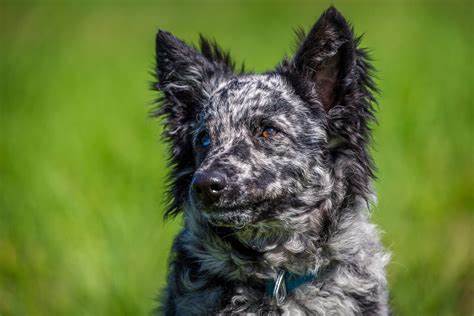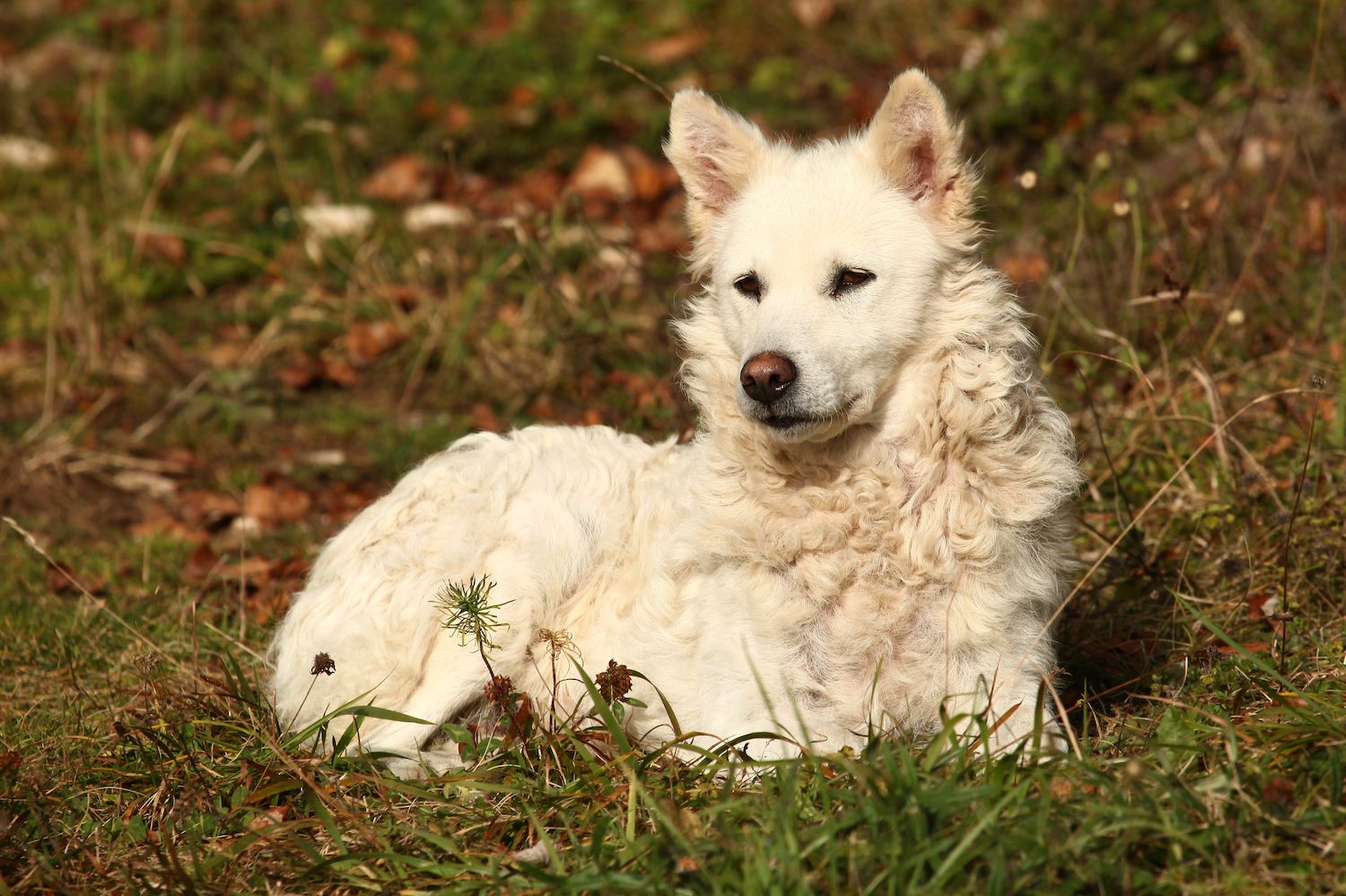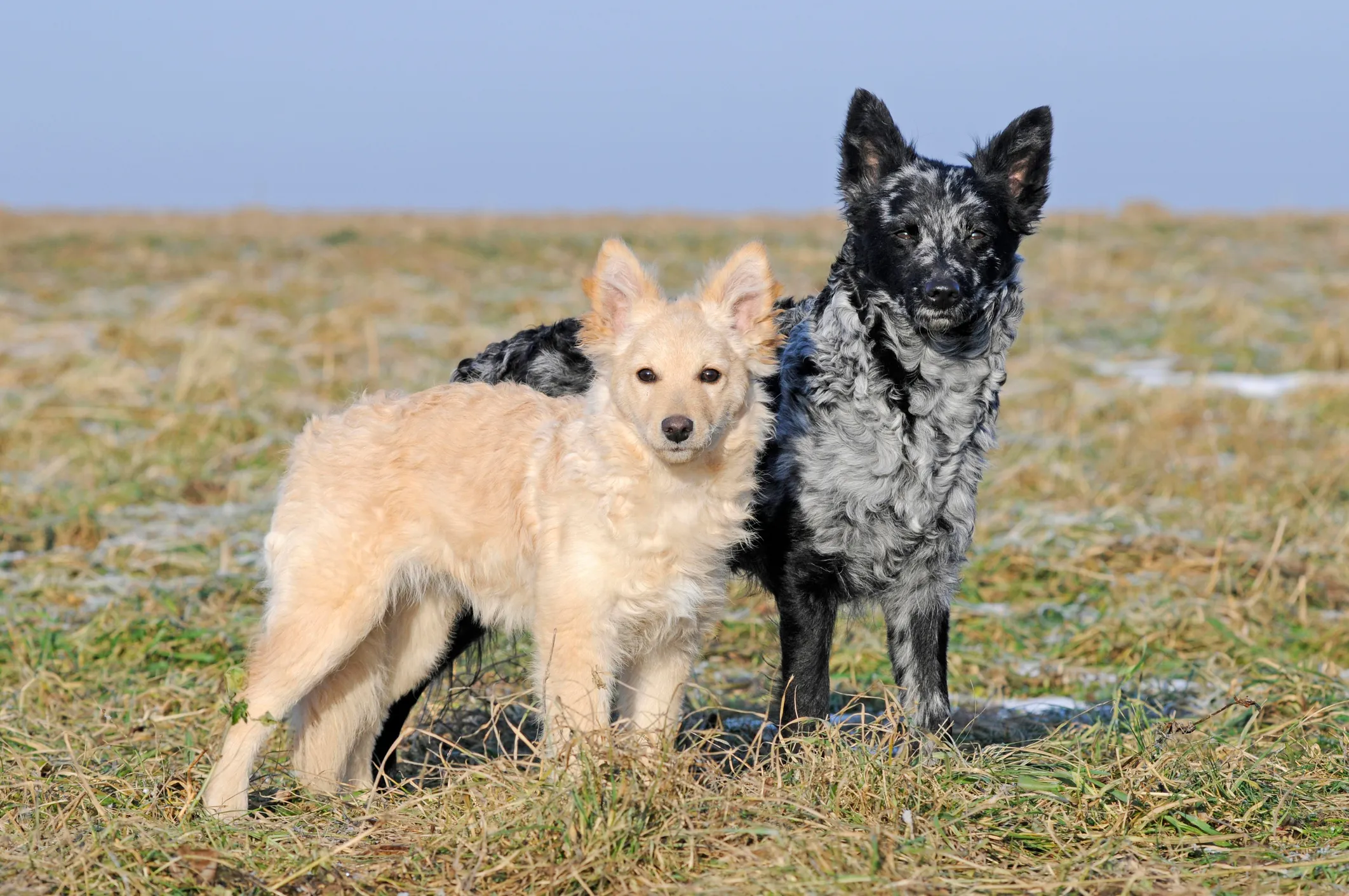
The Mudi is a medium-sized herding dog originating from Hungary, where it was developed by the Hungarian shepherds over several centuries. The breed is a product of natural selection, adapted to help with the herding of livestock, especially in the rough terrains of Hungary. It is believed to have descended from various herding dogs brought to Hungary by the Magyar people, blending with local dogs to create the versatile and energetic Mudi.
Despite its long history in Hungary, the Mudi wasn’t widely recognized outside of Europe until the 20th century. It wasn’t until the 1930s that the breed was officially named and standardized. The Mudi is still used as a working dog, particularly for herding sheep, cattle, and other livestock, but it has also found a place as an energetic companion and agility dog.
The Mudi remains somewhat rare outside of Hungary, but its popularity is growing among dog enthusiasts and those involved in herding, agility, and obedience sports. It is recognized by the FCI (Fédération Cynalogique Internationale) but is not yet officially recognized by major American organizations like the AKC. The breed is gaining traction as a family pet due to its intelligence, versatility, and friendly nature, especially in active households.
The Mudi is a compact and muscular dog, built for agility and hard work. Its appearance is unique, with a coat that can vary in texture, giving it a distinctive look.
Coat:
Medium-length, curly or wavy, dense, and weather-resistant
Color:
Black, white, gray, brown, and merle—often with markings
Size:
• Height: 16–19 inches (41–48 cm)
• Weight: 18–29 lbs (8–13 kg)
Head & Expression:
The Mudi has a broad skull with a slightly rounded muzzle, bright eyes, and an alert expression. Its ears are medium-sized and triangular, standing erect with a slight outward flare.
Tail:
A well-furred tail that can be carried in a gentle curve over the back or extended, often held high in motion.
Body:
Muscular, agile, and compact with a square, balanced build
The Mudi is an intelligent, active, and independent dog with a strong work ethic. Its friendly demeanor makes it a great companion, but its herding instincts are always present.
Energetic and Playful:
The Mudi thrives on activity and requires daily exercise, such as long walks, runs, or agility training.
Intelligent and Trainable:
Quick to learn, the Mudi excels in obedience training and enjoys tasks that challenge its mind.
Loyal and Protective:
This breed forms a strong bond with its family and can be protective of loved ones, though it is not overly aggressive.
Versatile Worker:
Originally bred to herd livestock, the Mudi is also capable of guarding and performing various jobs around the farm.
Independent:
While the Mudi loves its family, it can sometimes display an independent streak, especially when working in the field.
Friendly but Reserved:
Generally friendly with strangers, though it can be reserved or aloof until it feels comfortable with them.

• Ideal Working Dog:
The Mudi is an excellent choice for families with livestock or those involved in dog sports like agility, obedience, and herding trials.
• Family-Friendly:
With early socialization, the Mudi becomes a well-rounded and affectionate family dog. It tends to be good with children and other pets.
• Agile and Athletic:
Perfect for active households that can provide the mental and physical stimulation it craves.
• Low Grooming Maintenance:
Despite its thick coat, the Mudi requires minimal grooming beyond regular brushing to prevent matting.
• Versatile Companion:
Not just a working dog, the Mudi is adaptable to various roles, including therapy and service work, as well as being a loyal companion.
Training:
The Mudi is highly trainable, but it requires an experienced handler who can provide firm, consistent leadership. Positive reinforcement methods work best with this breed.
Exercise:
The Mudi has high energy levels and requires significant daily exercise. This can include long walks, runs, playtime, and mental stimulation such as puzzle toys or agility training.
Grooming:
The Mudi’s coat is relatively easy to maintain but should be brushed regularly (2–3 times a week) to prevent mats. It sheds seasonally, so be prepared for increased shedding during those times.
Nutrition:
Feed a high-quality, balanced diet tailored to an active dog. Watch its weight as the Mudi has a muscular build that can develop well with appropriate nutrition.
Companionship:
The Mudi thrives on close interaction with its family and can be very affectionate. It is not suited to being left alone for long periods.

The Mudi is generally a healthy and hardy breed with a lifespan of 12–14 years. However, like all breeds, it can be prone to certain health issues:
• Hip dysplasia: A common concern in medium-sized breeds.
• Progressive retinal atrophy (PRA): An inherited condition that affects the eyes.
• Epilepsy: Some cases of epilepsy have been reported in the breed.
Regular veterinary check-ups and a healthy lifestyle will help ensure the Mudi stays fit and happy.
Compared to the Border Collie, the Mudi is less intense but still highly energetic and intelligent. While both are fantastic working dogs, the Mudi is slightly more independent and has a less overwhelming drive to work. It’s also more reserved around strangers than the typically outgoing Border Collie.
Compared to the Australian Shepherd, the Mudi has a similar temperament, but it is more compact and has a different coat type. Both breeds are excellent for active families and work well in agility and obedience competitions.
The Mudi is perfect for active individuals or families who can provide it with the mental and physical stimulation it requires. It’s an excellent choice for those involved in dog sports, farming, or those who simply love the outdoors. It’s not the best breed for a sedentary household or for owners with limited time for exercise and training.
Best For:
• Active families
• Farmers and ranchers
• Dog sports enthusiasts (agility, obedience, herding)
• Experienced dog owners
Not Ideal For:
• Apartment dwellers with little space for exercise
• First-time dog owners
• People who prefer a laid-back dog
United Pet Club is here to support your journey in welcoming a Mudi. Whether you’re looking for an active companion or a hardworking farm dog, we can provide advice on training, care, and finding reputable breeders to help you start your journey.